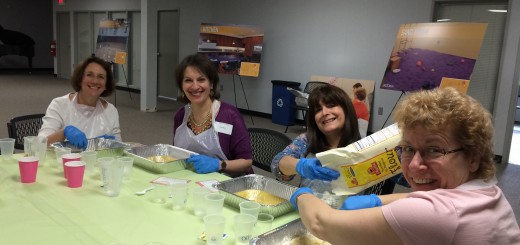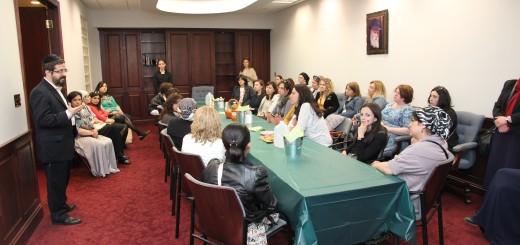1-2-3 Eyes on Me
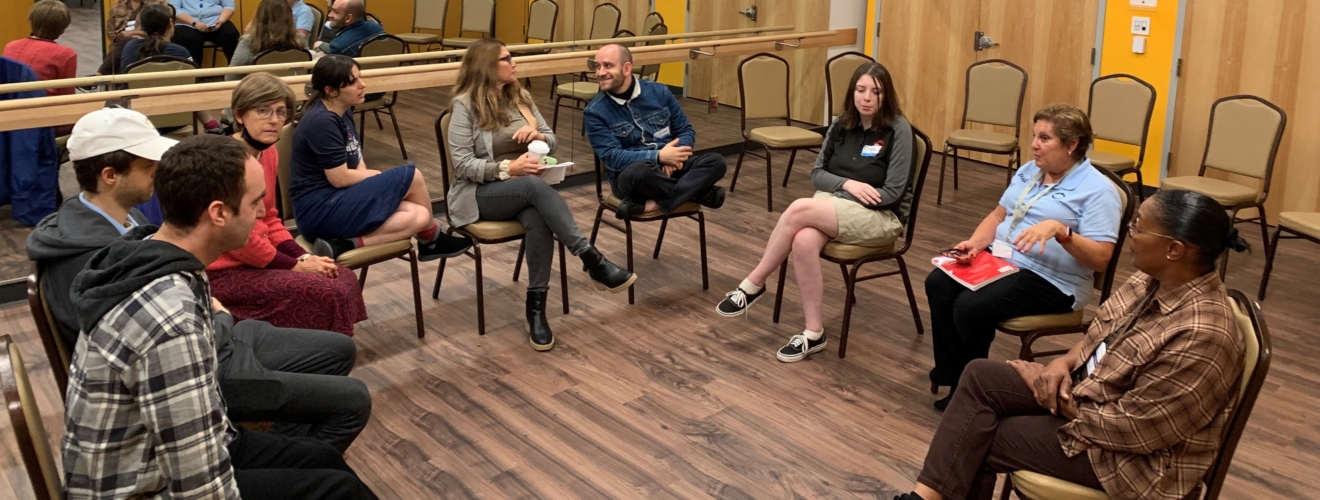
Young Adults Learn Critical Social Skills
Listening actively, asking questions, not interrupting, maintaining eye contact: they are all communication skills, often the keys to building relationships. And they can prove tricky to learn. They are not always intuitive and require plenty of practice. LifeTown’s new Social Circle, launched this week for young adults, provides the perfect setting to tackle this skill set.
On Tuesday, October 25, participants and their buddies sat in a circle. After introducing themselves and watching a brief video covering some tips to good communication, they discussed some of the tips together.
Eric brought up the importance of listening to other people. Asked if it’s something he’s good at by facilitator Shelly Lipka, he answered, “It’s something I need to work on.” Phoebe acknowledged that she sometimes has a tough time with eye contact. “I find it hard with people I don’t know very well making direct eye contact, but I know it’s important,” she said.
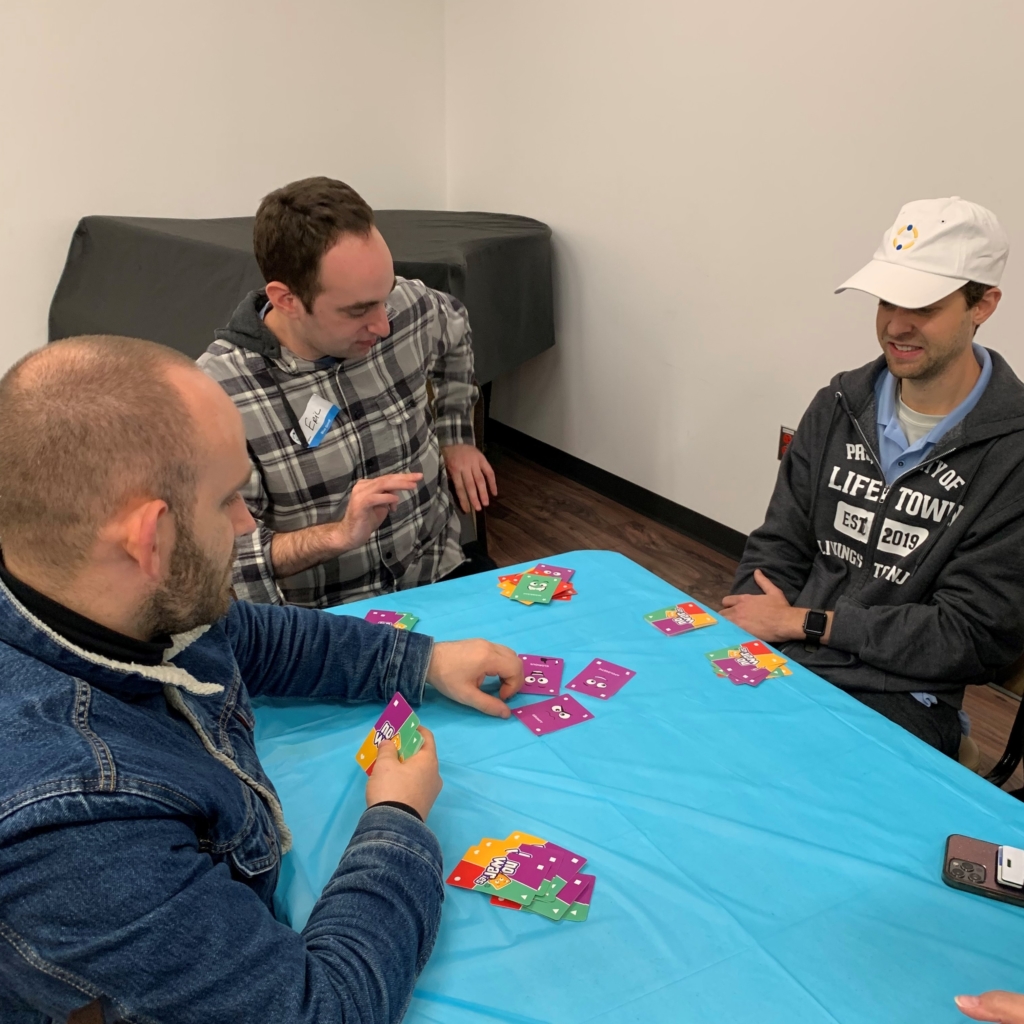
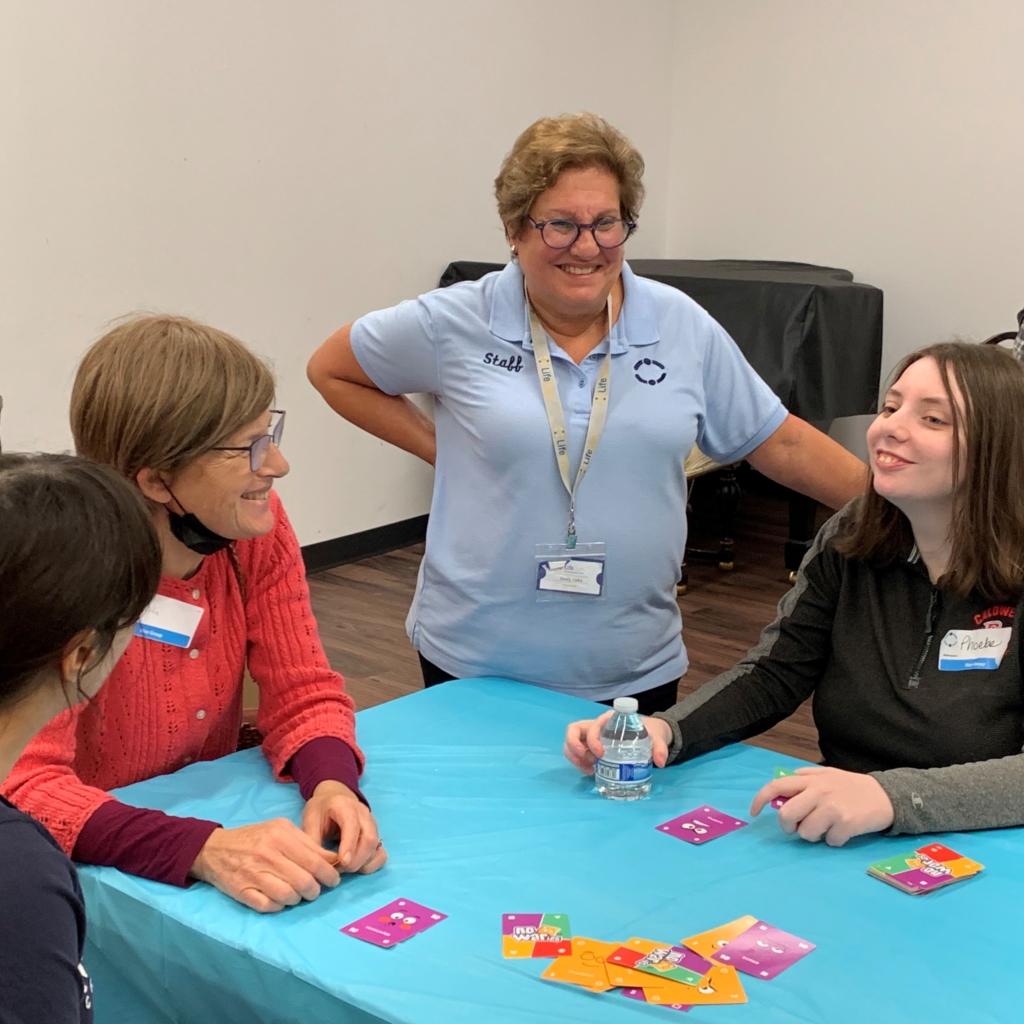
A demonstration of speaking to LifeTown program director Ann Ferreira while looking at staff member Megan illustrated how avoiding eye contact can sow confusion and even cause frustration.
During the discussion, participants practiced the skills, and were reminded not to interrupt and to keep cell phones put away during conversations. When the discussion veered away from the topic onto a tangent relevant only to two people in the room, participants agreed it would be better for the pair to discuss the topic later on their own. Another tangent about the evolution of cell phones that involved everyone from staff and caregivers to the participants provided an effective example of a successful conversation using listening, eye contact, questions and more.
Participants had another opportunity to practice the various skills they discussed while having conversations over a card game focused on identifying and describing emotions. The group will continue to work on role playing and discreet skills through the fall. “The more they practice, the less they will interrupt each other, the better eye contact they will have, and the more their listening skills will improve,” said Lipka. “It’s an ongoing process.”

